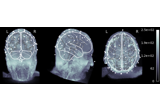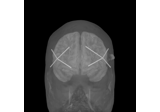mne.channels.read_custom_montage#
- mne.channels.read_custom_montage(fname, head_size=0.095, coord_frame=None)[source]#
Read a montage from a file.
- Parameters
- fname
str File extension is expected to be: ‘.loc’ or ‘.locs’ or ‘.eloc’ (for EEGLAB files), ‘.sfp’ (BESA/EGI files), ‘.csd’, ‘.elc’, ‘.txt’, ‘.csd’, ‘.elp’ (BESA spherical), ‘.bvef’ (BrainVision files), ‘.csv’, ‘.tsv’, ‘.xyz’ (XYZ coordinates).
- head_size
float|None The size of the head (radius, in [m]). If
None, returns the values read from the montage file with no modification. Defaults to 0.095m.- coord_frame
str|None The coordinate frame of the points. Usually this is “unknown” for native digitizer space. Defaults to None, which is “unknown” for most readers but “head” for EEGLAB.
New in version 0.20.
- fname
- Returns
- montageinstance of
DigMontage The montage.
- montageinstance of
See also
Notes
The function is a helper to read electrode positions you may have in various formats. Most of these format are weakly specified in terms of units, coordinate systems. It implies that setting a montage using a DigMontage produced by this function may be problematic. If you use a standard/template (eg. 10/20, 10/10 or 10/05) we recommend you use
make_standard_montage(). If you can have positions in memory you can also usemake_dig_montage()that takes arrays as input.
Examples using mne.channels.read_custom_montage#

EEG source localization given electrode locations on an MRI
